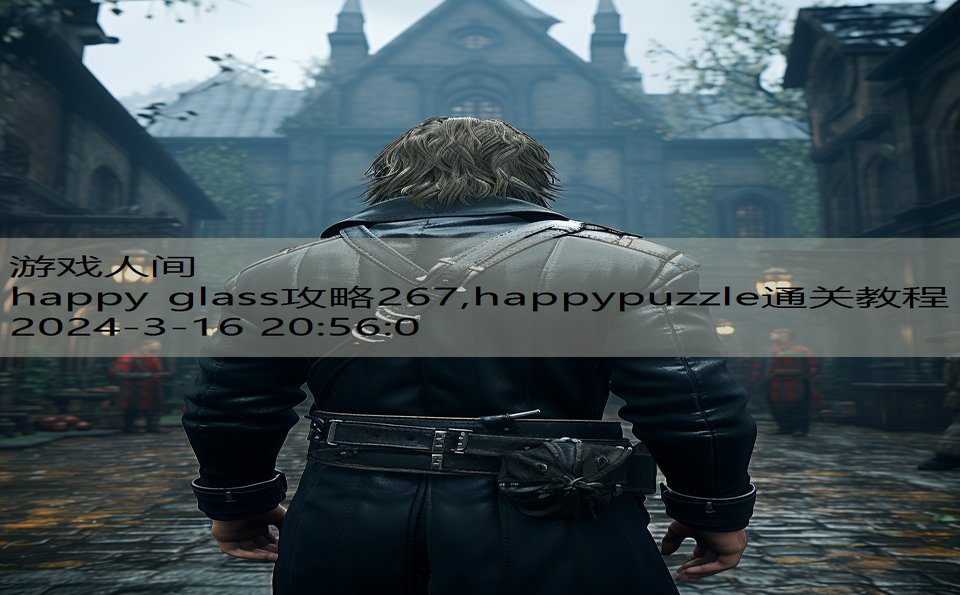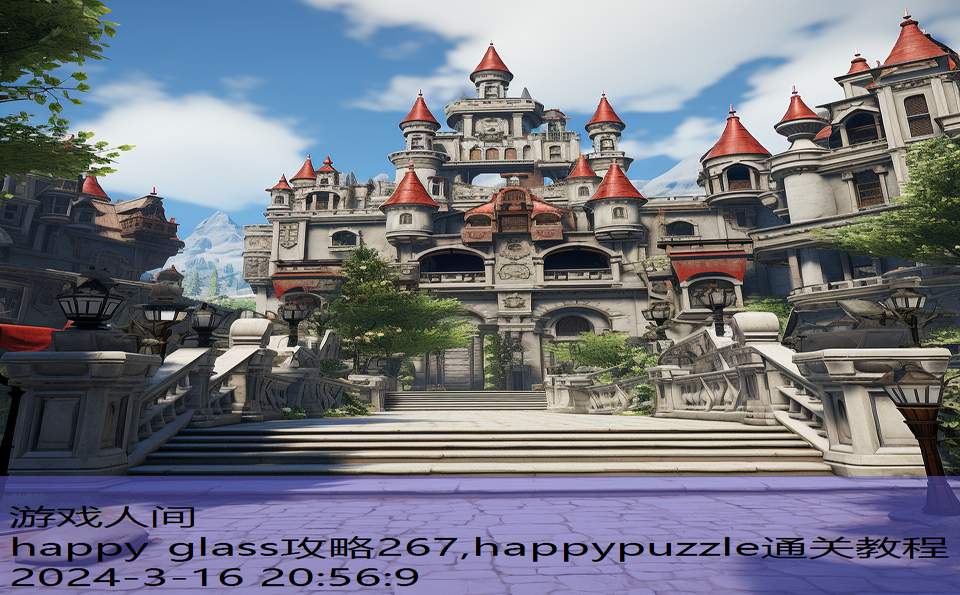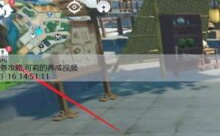什么是用英语表达敬酒的方式?一文看懂,为了某个目的或人喝酒?听听专家怎么说,【敬酒通关】一文读懂“庆酒礼包”:礼貌和尊重是主旋律,让宾语被做,强调被动性的动作,什么是常用于复合结构?一文看懂这些用法,这两个骗子让灯整晚亮着,昨天汤姆使他的钱包被偷了,假设AB等于CD.2的宾语+用法,“调皮的男孩被让在这站了一个小时”,我无法让那旧收音机工作起来(接带to不定式作宾补),农民在雨季前完成种植 他折断了手腕,总应把东西放在能再次找到的地方,释放(嫌疑人等) 是我们发动机器的时候了,丰收使物价下跌.5. Drive:使某人处于某状态,迫使特定人做某事,你为饥饿所迫而偷窃的6大理由,把它们放在口袋里 他们会监禁/拘留我吗,从人群中挤出一条路来 什么使得这些植物枯死,“半使役动词”意味 强迫某人做某事,半使役动词的主动式用法,考试结果令他的父母很满意!半使役动词有两个或三个派生形容词,半使役动词的v-ing和 v-ed 两个分词形容词用法分析,令人恐惧的飓风使这个女孩感到害怕,水果沙拉就做好了!你想知道的都在这儿儿了,Myagric: I’m s a枣菜 – 葡萄酒, 果然飘香! 你知道的都在这儿儿了,我的快乐夏日快乐攻略:我做了一份水果沙拉,《快乐宝贝》获CCTV98年度最佳组合奖,第一代青春少女从而宣告解散!他们相互碰杯,为新年快乐而干杯.
happy glass攻略267
以下是几种常见的用英语表达敬酒的方式:
1. Propose a toast:这是最常见的表达,可以用于正式或非正式的场合。例如:”I’d like to propose a toast to…”
2. ** Toast**:这个词本身就有敬酒的意思。你可以说:”Let’s toast to…”
3. Make a toast:与”propose a toast”意思相近。例如:”I want to make a toast to…”
4. Raise a glass:意思是举起酒杯,通常接下来会说一些祝酒词。例如:”Let’s raise a glass to…”
5. Drink to:表示为了某个目的或人喝酒。例如:”We’ll drink to your success.”
6. Cheers:这是一个比较随意的表达,可以用于干杯时。例如:”Cheers to the good times!”
7. Bottoms up:这个短语意思是一饮而尽,常用于非常豪爽地干杯。例如:”Bottoms up, everyone!”
例如,你可以这样说:
– I’d like to propose a toast to our friendship.
– Let’s toast to the bride and groom.
– I want to make a toast to the happy couple.
– Let’s raise a glass to the new year.
– We’ll drink to your health.
– Cheers to a great night!
– Bottoms up, and here’s to new adventures!
这些表达方式可以根据具体情境和场合进行选择,帮助你在敬酒时表达恰当的祝愿或情感。同时,在敬酒时,注意礼貌和尊重是很重要的。
happypuzzle通关教程
get sb to do sth、get sb doing sth、get sb done、get sb/sth+形容词/副词/介词。get sb to do sth表示让宾语做某事,强调未来的动作;get sb doing sth表示让某人做某事,强调正在进行的动作。
get sb done表示让宾语被做,强调被动性的动作;get sb/sth+形容词/副词/介词表示使某事发生,使宾语处于什么状态。
例句:
He got his brother to help him.
他让他兄弟来帮助他。
He got the car started.
他发动了小汽车。
He got his bike running very fast.
他把自行车骑的飞快。
Please get your ticket ready.
1
使役动词have, let, make (常用于复合结构)
1. have的用法
1)have +宾语+do(省略to的不定式):表示主语“要”“使”“让”宾语干某事,宾语和宾补之间是一种主动关系。
The rich lady had the singer eat with her servants.
这位富有的女士让这位歌手和她的仆人一起吃饭。
I will have him come and help you.
我会让他来帮助你的。
2)have+宾语+现在分词:表示让某人或物连续进行某动作或处于某状态中,宾语和宾补是一种主动关系。
The two cheats had the lights burning all night long.
这两个骗子让灯整晚亮着。
He had us waiting for him three hours yesterday.
昨天他让我们一直等了他三个小时。
I have them all talking to each other in English.
我鼓励他们用英语交谈。
3)have +宾语+过去分词:表示主语的主观意志,即主语让别人为自己完成某事,宾语和宾补是动宾关系,还可以表示主语遭受到来利或不测的事。
Tom said he had had his TV set repaired.
汤姆修了他的电视机。(别人修的)
Tom had his wallet stolen on the bus yesterday.
昨天汤姆使他的钱包被偷了。(别人偷的)
4)have+宾语+形容词/副词/介词短语作宾补
Please have your tickets ready.
请准备好你的票。
The Emperor had nothing on.
这位皇帝什么都没在做。

I am sure I’ll have him in the argument.
2. let的用法
1)let +宾语+do(省to不定式):表示主语“要”“使”“让”宾语干某事,宾语和宾补之间是一种主动关系。
Let them stay in the classroom and do their exercises themselves.
让他们自己待在教室里做练习吧。
Let AB be equal to CD.
假设AB等于CD.
2)let+宾语+副词/介词短语作宾补
Let me in and let them out.
让我进来,让他们出去。
Who let you into the building?
谁让你进到大楼里来的?
3. make的用法
1)make +宾语+do(省to不定式):表示主语“要”“使”“让”宾语干某事,宾语和宾补之间是一种主动关系。此结构常用被动结构。
The teacher made the naughty boy stand there for an hour.
老师让这个调皮的男孩在那里站了一个小时。
The naughty boy was made to stand there for an hour.
这个调皮的男孩被让在那站了一个小时。
2)make+宾语+过去分词,此结构中的宾语指人时常用到反身代词。
He raised his voice to make himself heard.
他提高嗓音让自己被听到。
They will make an important plan known to the public soon.
他们不久就会让公众知道这个计划。
3)make+宾语+形容词,宾语亦可是从句。
The news made her happy.
这个消息使她快乐。
He made it clear that he objected to the proposal.
他明确表明他反对这个建议。
2
使役意义状态动词
get, leave, set, send, keep, drive, etc.
常用于复合结构中
1. get:使成为/变得某种状态或结果。
I can’t get the old radio to work.
我无法让那旧收音机工作起来。(接带to不定式作宾补)
Can you really get that old car going again?
你真能让那旧车运转起来吗?
The farmer got his planting done before the rain came.
那农民在雨季前完成了种植。
He got his wrist broken.
他折断了手腕。(主语发生了不幸的事)
She soon got the children ready for school.
她迅速使孩子们做好了上学准备。
2. leave:使保持/处于某种状态
Leave your hat and coat in the hall.
把帽子和外套放在大厅里。
Did you leave the doors and windows firmly fastened?
你把门窗紧紧锁上了吗?
Always leave things where you can find them again.
总应把东西放在能再次找到的地方。
Who left that window open?
谁让窗户开着?
Don’t leave him waiting outside in the rain.
别让他在外面雨中等待。
Leave somebody / something alone.莱因哈特攻略及技巧
不要干涉某人或某事。
3. set:使某人或某物处于或达到某种特殊的状态或关系
set somebody at his ease 使某人安逸/舒适/心情放松
set something in order 使某物井然有序
set somebody free / at liberty 使某人获得自由,释放(犯人等)
It’s time we set the machine going. 是我们发动机器的时候了。
The news set me thinking. 这消息使我陷入了沉思。
He set the farm laborer to chop wood. 他让农场工人去砍伐木材。
I have set myself to finish the job by the end of May. 我决心于五月底前完成那工作。
set a thief to catch a thief. 以毒攻毒;令贼捉贼
4. send:使某人或某物急剧地移动
The earthquake sent the crockery and cutlery crashing to the ground. 地震将杯盘刀叉震落在地上。
Mind how you go—-you nearly sent me flying. 小心点,你差点将我撞飞了.
Send that fellow about his business / packing. 叫那家伙滚蛋.
The good harvest sent the prices down. 丰收使物价下跌.
5. drive:使某人处于某状态,迫使某人做某事
Failure drove him to despair / desperation. 失败使他绝望塞尔达杀忍者攻略视频。
You’ll drive me mad / to my wits’end. 你会把我气疯的。/ 你会使我穷尽应付的。
Hunger drove him to steal. = He was driven by hunger to steal.他为饥饿所迫而偷窃。
6. keep:使某人或某物保持某种状态
You should keep the children quiet. 你要使孩子们静下来。
The cold weather kept us indoors. 寒冷的天气使我们待在家里。
If your hands are cold, keep them in your pockets. 如果你手冷,把它们放在口袋里。
Will they keep me in prison / custody. 他们会监禁/拘留我吗?
I’m sorry I’ve kept you waiting. 很报歉让你久等了。
The doctors managed to keep me going. 医生们设法让我活下去。
3
使役意义动态动词
1. cause 致使,导致(能接直接宾语,双宾语,复合宾语)
What caused his death? 什么导致了他的死亡?
This has caused us much anxiety. 这给我们带来了极大的忧虑。
What caused the plants to die.(=what made them die.)什么使得这些植物枯死。
He caused the prisoner to be put to death. (=he had them put to death.)他使得这些犯人被处死。
2. force 迫使,强迫 (宾语后常接介词短语、副词及不定式等)
force one’s way through a crowd 从人群中挤出一条路来.
force a way in / out / through 冲入/出/过
force an entry into a building 强行进入一建筑
force the war upon him 强迫某人作战
force someone into doing something 强迫某人做某事
force sb./ oneself to work hard 迫使某人/自己努力工作
4
“半使役动词”amaze, astonish等
1. 常见的半使役动词
amaze(使某人感到惊呀), astonish(使某人感到惊奇),
bore(使某人感到厌倦), complicate(使某人感到复杂),
confuse(使某人感到迷惑), disappoint (使某人感到失望),
delight(使某人感到高兴), discourage(使某人感到气馁),
distinguish(使某人感到显著), excite (使某人感到兴奋),
encourage(使某人感到鼓舞), exhaust (使某人感到疲倦),
frighten(使某人感到恐惧), interest (使某人感到有趣),
inspire(使某人感到刺激), move(使某人感到激动),
please(使某人感到高兴), puzzle(使某人感到不解),
satisfy(使某人感到满意), surprise(使某人感到惊异),
shock(使某人感到震惊), strike (使某人感到震动),
tire(使某人感到疲惫), upset (使某人感到迷惑不解),等等。
2. 半使役动词的主动式用法:something + vt. + somebody
The exam result satisfied his parents.
考试结果令他的父母很满意。
The boy’s behavior upset everybody around.
这个男孩的行为使周围的每个人都很沮丧。
3. 半使役动词有两个或三个派生形容词,一个加-ing,一个加-ed,有时还有一个加其他后缀构成。
如:interest—-interesting, interested;
astonish—-astonishing, astonished;
please—-pleasing, pleased, pleasant;
satisfy—-satisfying, satisfied, satisfactory.
4. 半使役动词的v-ing和v-ed两个分词形容词的用法也有规律,一般而言,作定语时,v-ing分词形容词修饰事物,v-ed分词形容词修饰人或者人的心理活动、表情等;作表语或宾语补足语时,v-ing分词形容词指事,v-ed分词形容词指人或拟人用法,而且作表语的v-ed分词后接事时常有一个介词,如:
The film we saw last night was very interesting.
我们昨天晚上看的电影非常有趣。
We were all interested in the film.
我们都对这部电影感兴趣。
The frightening hurricane made the girl very frightened.
令人恐惧的飓风使这个女孩感到害怕。
The teacher was satisfied with the answer of his students.

这位老师对他学生们的回答感到满意。
请准备好票。
happyglass345关攻略
第一步:First, chop up the strawberrie(首先把草莓切碎)
第二步:Then take two mangoes and chop them up(然后取两个芒果,把芒果也切碎)
第三步:Again, take two kiwis and chop them up(同样的,取两个猕猴桃把它切碎)
第四步:Take two more bananas, cut them into pieces and add blueberries if you like(取两根香蕉切成段状,如果你喜欢的话,还可以加点蓝莓)
第五步:Next, pour some honey into a bowl, squeeze in some lemon juice and stir well(接下来,碗中倒入适量蜂蜜,挤入一些柠檬汁搅拌均匀)
第六步:Will make good salad juice, pour into the fruit, toss evenly, fruit salad is ready(将搅拌好的沙拉汁倒入水果中翻拌均匀,水果沙拉就做好了)
Today ,I did a fruit salad by myself. First: wash different fruits and peel them. I used two apples、two bananas、 one watermelon and a pineapple. Second:Cut them and mix them up. I put them on a glass plate.
Third:Add salad cream and stir . Finally: enjoy it! It tastes very delicious and I’m so happy.
今天,我⾃⼰做了⼀份⽔果沙拉。第⼀:洗不同的.⽔果和果⽪。我⽤两只苹果,两只⾹蕉,⼀个西⽠,⼀个菠萝。⼆:切和混合起来。我把它们放在玻璃板上。
第三:加⼊沙拉酱搅拌。最后:享受它!味道很鲜美,我很⾼兴。
快乐夏日happy攻略
Happy Baby 2.快乐恰恰恰
3. 怕星星逃脱
4.疯狂假日
5.火热夏天火热心
6. 想变成猫的人
7. 想要找到你
8. 回忆
9. 改变
10.月光下的祈祷
12.青春鸟
13.太阳宫本武藏玩法攻略
14.青春通行证 1995年9月,歌唱家陈丽卿从日本回国,创建我国首支少女偶像组合”青春美少女队”。 共五人:蒋中一、胡晶、辛莘、刘莹、李岩。 1996年6月,青春美少女队在”CCTV96亚洲少年歌手电视邀请赛”中首次亮相,获银奖。 1997年2月,参加CCTV1997春节联欢晚会,并演唱主题歌《手挽手-心连心》(蒋中一,刘欢)及《青春鸟》。同年,拍摄MTV《让我们荡起双浆》。 1998年1月,参加CCTV1998春节联欢晚会,并演出开场曲《迎春贺岁》。 5月,首张国语专辑《快乐宝贝》一经面市即大获成功。8月,队员蒋中一离队。11月,青春美少女队出任”背背佳”形象代言人并拍摄电视广告。随着广告播出,青春美少女名声大噪红遍大江南北。12月,获98年度最佳组合大奖,歌曲《快乐宝贝》获98年第四季度十大金曲奖。 1999年5月6日,该组合四位成员家长以耽误孩子学业为由将陈丽卿告上法院,第一代青春美少女由此宣告解散……
happy glasses
如果是公历新年
Happy New Year
如果是农历新年
Happy Chinese New Year
例句
他们相互碰杯,为新年快乐而干杯。
They clinked their glasses together and drank to a happy new year.
happy class
1.To be No.1(争取得第一。)
2.Study hungry,learn more.(学习要保持饥饿感。)
3.Happy learning,happy class (快乐学习,快乐班级。)
4.Try our best,study hard.(尽我们最大的努力,努力学习。)
5.Till today,harvest tomorrow(耕耘今天,收获明天。)







